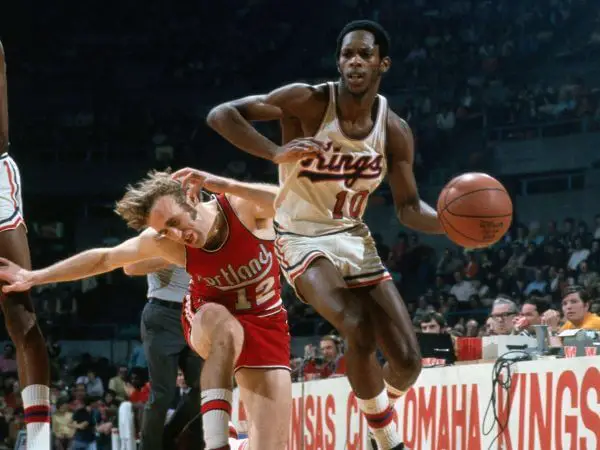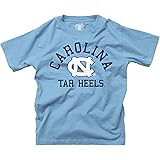
Explore the Kansas City Kings’ dynamic legacy filled with triumphs like Nate Archibald’s impressive feats and heartaches such as his injury impacting the team. Coaching changes under Cotton Fitzsimmons and strategic shifts shaped the team’s success. Unpredictable playoff victories and losses challenged the Kings, showcasing their resilience. The relocation to Sacramento in 1984 due to attendance struggles marked a defining moment in the team’s journey. Key personnel changes like Otis Birdsong’s trade brought significant roster shifts. The Kings’ colorful journey signifies a tale of resilience, adaptability, and transformation in the NBA landscape.
Established
1923
City
Rochester – Cincinnati – Kansas City – Sacramento
League History
1949 – Present / National Basketball Association
1948 – 1949 / Basketball Association of America
1945 – 1948 / National Basketball League
1923 – 1945 / Various Unknown Leagues
Team History
1985 – Present / Sacramento Kings
1975 – 1985 / Kansas City Kings
1972 – 1975 / Kansas City-Omaha Kings
1957 – 1972 / Cincinnati Royals
1923 – 1957 / Rochester Royals
Nickname
Kings – The Kansas City Kings have been a beloved NBA team since their debut in 1972. As one of the most successful franchises in the league, they have become an essential part of basketball history and culture. But where did the name come from? What is the origin story behind “The Kings” nickname?
It all began with an owner who wanted to honor his hometown's rich baseball history. The original owners, Ewing Kauffman and Lamar Hunt, chose "Kings" as a nod to Kansas City's Negro Leagues baseball teams - The Monarchs and Stars - which had great success during that period. They also felt it was fitting for their new franchise because it represented strength and power on the court that would hopefully bring glory back to KC sports fans everywhere!
In addition to honoring local heroes from decades past, there were other reasons why this particular name resonated so strongly with its founders: It conveyed royalty; it embodied leadership; plus, it was easy for people around town (and across America) to remember! This combination made perfect sense when you consider what these two men hoped their team could achieve—winning championships every season while bringing pride back home after years without much success!
Today, many generations later, we still call our favorite basketball squad 'the Kings' as a tribute to both past legends & present-day players alike who make up such an incredible organization each year – no matter how far away from home they may be playing games or practice drills at any given moment...we'll always remain loyal fans cheering them on through thick & thin until victory is won once more over opponents near & far alike.
Championship
NBA Championships 0
1951
Arena
2016 – Present / Golden 1 Center
2012 – 2016 / Sleep Train Arena
2011 – 2012 / Power Balance Pavilion
1888 – 2010 / ARCO Arena II
1985 – 1988 / ARCO Arena I
*Kansas City*
1974 – 1985 / Kemper Arena
1972 – 1978 / Omaha Civic Auditorium
1972 – 1974 / Kansas City Municipal Auditorium
*Cincinnati*
1957 – 1972 / Cincinnati Gardens
*Rochester*
1955 – 1957 / Rochester War Memorial
1949 – 1954 / Edgerton Park Arena
1923 – 1948 / Unknown Arena
Owner
2013 – Present / Vivek Ranadive
1999 – 2013 / George, Joe and Gavin Maloof
1992 – 1999 / Jim Thomas
1985 – 1992 / Gregg Lukenbill and Joe Benvenuti
1959 – 1985 / Thomas Woods
1923 – 1959 / Les and Jack Harrison
- 1972
- 1972
- 1972 - 1976
-
Move to Kansas City – Kings
One of the possible targets for the relocation of the Cincinnati Royals was San Diego, which had lost the Rockets to Houston in 1971. However, it was decided to move the team to Kansas City, while also playing some of the home games in Omaha and St. Louis. This was not a new business plan for the team, as some ... -
New Nickname Kings
One of the ramifications of moving to Kansas City was the team name… They could not keep the name “Royals” because of the baseball team of the same name, but they maintained an air of regality and officially changed their name to the Kansas City-Omaha Kings. -
Nate Archibald era
Nate Archibald was selected in the second round of the 1970 NBA draft (19th pick) by the Cincinnati Royals. He was also drafted by the Texas Chaparrals of the American Basketball Association. The team netted a new superstar in Nate Archibald, who led the league in scoring and assists in the 1972 – 1973 season. The Kings later played several ...
To qualify as the greatest player for this team, the player must have played one season for this team. If not, we will remove the player.
* verifies that player has played for this team as an added player by a fan.
History of the Kings
In the tumultuous journey of the Kings, previously known as the Cincinnati Royals, marked by triumphs and setbacks, pivotal moments in their history have shaped the course of the franchise’s legacy. Player performances and team dynamics played crucial roles in defining the Kings’ trajectory.
Season highlights such as Nate ‘Tiny’ Archibald leading the NBA in scoring and assists in 1972/73 showcased individual brilliance amidst team challenges. Memorable games like the ones in 1978/79 when the Kings, formerly known as the Cincinnati Royals, clinched a division title after 27 years highlighted the team’s resilience.
However, setbacks like Archibald’s injury in 1973/74 and subsequent struggles underscored the team’s vulnerability. These ups and downs not only influenced the Kings’, previously known as the Cincinnati Royals, on-court performance but also resonated with their loyal fan base, making their history a tapestry of both glory and adversity.
Coaching Transitions and Achievements
Navigating through a succession of coaching changes and strategic recalibrations, the Kings’ evolution under various leaderships has been instrumental in shaping their on-court performance and organizational direction. Coaching legacies have left a lasting impact on the team’s development, with notable figures like Cotton Fitzsimmons making significant strides in player development.
Strategic adjustments under different coaches have played a crucial role in fostering team chemistry and adapting to the ever-evolving NBA landscape. Each coaching transition brought its own set of challenges and achievements, from Bob Cousy’s departure in 1974 leading to Phil Johnson’s tenure, to the success under Cotton Fitzsimmons in the late 1970s.
The Kings’ ability to adapt to new coaching philosophies and styles has been essential in their journey towards success on the court.
Playoff Victories and Challenges
Amidst the intense competition of the postseason, the Kings have encountered both remarkable triumphs and formidable challenges in their quest for playoff success.
In the playoffs, the team faced unexpected upsets and heartbreaking defeats despite their regular-season successes. The playoff intensity tested the Kings’ resilience, with each game demanding their best performance.
In 1980/81, the Kings surprised many by upsetting top teams in the playoffs, showcasing their ability to rise to the occasion. However, in subsequent playoff runs, the team experienced setbacks, including key player losses and missed opportunities, leading to some heartbreaking defeats.
These challenges highlighted the need for the Kings to continually evolve and adapt in the demanding landscape of playoff basketball.
Relocation to Sacramento
The relocation of the Kings to Sacramento in 1984 marked a significant turning point in the team’s history. This move was prompted by attendance challenges faced by the Kings in Kansas City, culminating in their final game there with 11,371 fans in attendance. Despite finishing last in their last season in Kansas City, the Kings were granted approval by the NBA to relocate to Sacramento.
Following a series of key personnel changes and a challenging period in their former location, Sacramento holds memories of both excitement and struggle for the team. This transition not only changed the team’s geographical location but also set the stage for a new chapter in their journey, one that would see them eventually become an integral part of the Sacramento community.
Impactful Personnel Changes
Undergoing significant personnel changes, the Kings organization experienced pivotal shifts that influenced their trajectory during the transition to Sacramento in 1984.
In the early 1980s, key player acquisitions and departures reshaped the team’s roster, leading to both successes and challenges. The trade of Otis Birdsong and departure of Scott Wedman in 1981/82 altered the team’s dynamics, while the emergence of Larry Drew as a top scorer in 1982/83 brought a new dimension to the Kings’ playing style.
Additionally, the sale of the team to a group from Sacramento in 1983/84 marked a significant ownership change, coinciding with Cotton Fitzsimmons stepping down as head coach. These roster adjustments had a lasting impact on the Kings as they navigated through a period of transition and relocation.
Sports Fan Products
Retired Number
1 / Nate Archibald
2 / Mitch Richmond
4 / Chris Webber
6 / Sacramento Fans “The Sixth Man”
11 / Bob Davies
12 / Maurice Stokes
14 / Oscar Robertson
16 / Peja Stojakovic
21 / Vlade Divac
27 / Jack Twyman
44 / Sam Lacey
*Blue is this team’s history




























